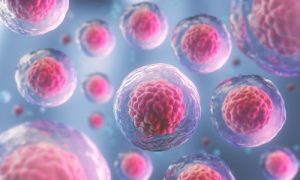More women than ever are waiting until their mid- or late 30s or even 40s to have a family. It’s also common to hear about fertility struggles past age 35.
There are various reasons why women and couples may want to wait to conceive: the desire to be more financially stable, wanting to be professionally established, and even uncertainty about whether to have children are a few. Regardless of the reason to wait to try to get pregnant, once you’ve reached your mid-30s, you are constantly bombarded with warnings that it’s more difficult.
Why Is It Harder to Conceive After Age 35?
Many women have fertility struggles even earlier than age 35. However, once you have reached 35, if you get pregnant, you’re considered to have a “geriatric” pregnancy. If you are trying to conceive at age 35 or older, you are supposed to take extra precautions because you are considered high risk. Women who are 35 or older have more of a chance of developing certain health problems. Their babies are also at greater risk of certain conditions.
Generally speaking, in your mid-20s, your fertility is at its peak. After you are close to age 30, your fertility begins to decline. Once you are 30, it’s believed that you have only a 20 percent chance of getting pregnant. Even scarier, once you reach the age of 40, that number declines even further, and you only have a five percent chance of conceiving. Additionally, there is a greater risk that your baby will have problems.
Of course, all hope is not lost if you are older than 35 and want to have a baby. There are plenty of things you can do before you even try to conceive that can help and increase your chances of having a perfectly healthy child.
Fertility Issues as Egg Quality and Quantity Begin to Decline
 As a woman, as you age, your eggs begin to see a decline in both number and quality. As a result, you may run into some fertility struggles and find that it’s difficult to conceive. Once you are 35 or older and you do become pregnant, you are more at risk of certain complications, including miscarriage, gestational diabetes and preeclampsia, a serious case of high blood pressure that can harm you and the baby.
As a woman, as you age, your eggs begin to see a decline in both number and quality. As a result, you may run into some fertility struggles and find that it’s difficult to conceive. Once you are 35 or older and you do become pregnant, you are more at risk of certain complications, including miscarriage, gestational diabetes and preeclampsia, a serious case of high blood pressure that can harm you and the baby.
Older mothers are also at greater risk of having a baby with Down syndrome due to chromosomal issues, and they have a higher chance of giving birth to multiples—twins or even more babies.
In addition to your age, the age of your male partner also plays a part in how much effort you have to put into conceiving. Older men can also contribute to your fertility struggles. If you are in your late 30s, and your significant other is five years older, your ability to conceive is 15 percent lower. While you can turn to in-vitro fertilization or IVF, your chances of a successful pregnancy coming to term are still only 17 percent. An egg donor, on the other hand, can increase your chances of having a healthy baby.
Is Fertility Really an Issue at 35 Years Old?
Although age 35 is used as the base point for the time when a woman’s fertility begins to decline, it’s not always clear-cut. Some doctors view 40 as being the beginning of potential problems, including fertility struggles. More women over 40 years of age opt for procedures such as amniocentesis and other tests to determine whether chromosomal abnormalities exist in their unborn babies.
There are other factors that can determine whether you would have difficulty conceiving once you have reached the age of 35. Some doctors believe that using 35 as the cutoff point for reproductive problems is archaic. In many cases, there isn’t much difference between a woman who is 33 and a woman who is 36 when trying to conceive or while pregnant. It’s more important to consider the patient rather than her age.
Making Healthier Choices
Regardless of your age, making healthier choices is essential when you’re trying to conceive. Taking folic acid or starting prenatal vitamins while consulting with your OB/GYN is important. This gives you a good head start on your journey to have a baby. Limiting your stress levels, while difficult, is also helpful.
You will also want to track your menstrual cycle and notify your doctor of any previous pregnancies and health issues. Consuming a diet that’s rich in omega 3 fatty acids, zinc, vitamin E and magnesium is essential as well. If you smoke, quit now and stop drinking alcohol. You should also incorporate a regular exercise routine into your daily life. It doesn’t have to be anything strenuous. Even just walking for 30 to 60 minutes per day is enough.
You don’t necessarily have to experience fertility struggles after age 35. Be open and honest with your doctor and do your part to stay healthy to have a better chance of conceiving.





